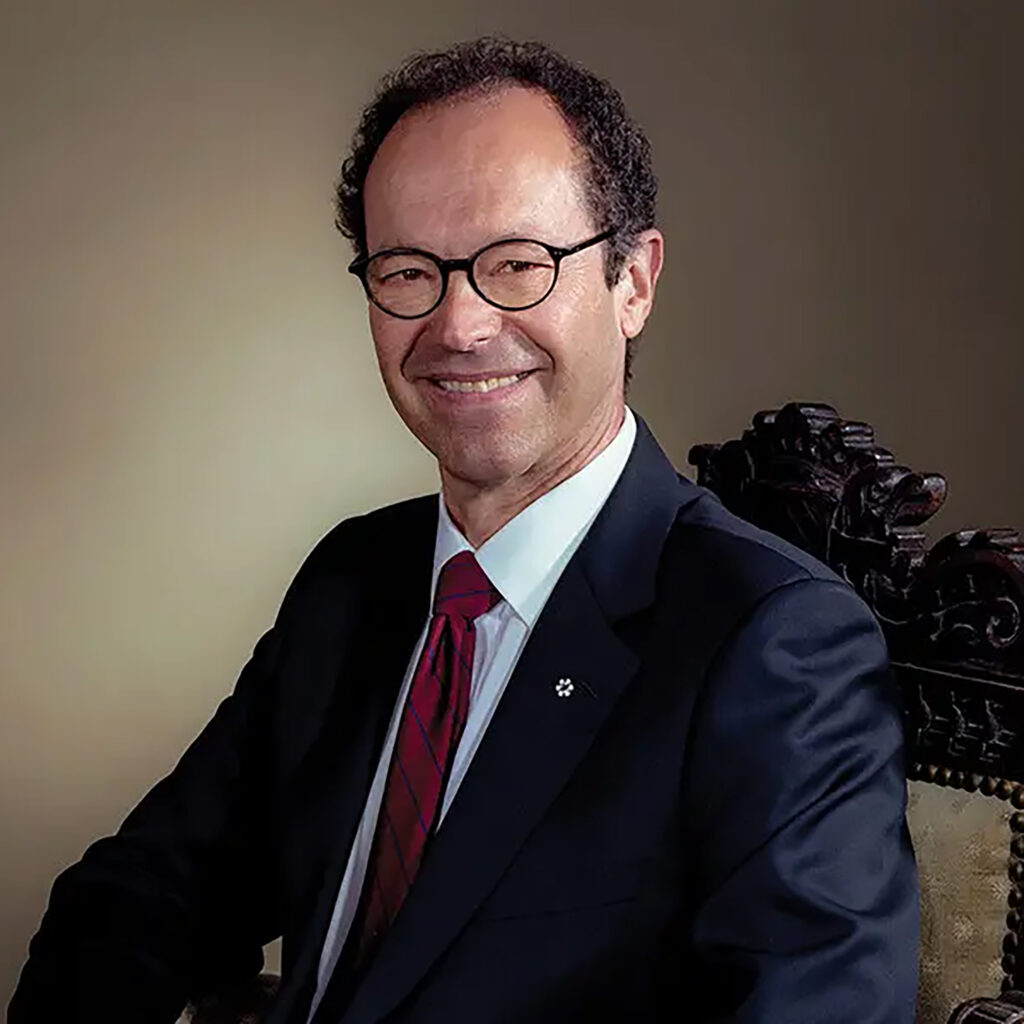Clinician, scientist and leader
Baker pursued specialist training in internal medicine and hematology at New York’s Mount Sinai School of Medicine. He then returned to Canada in 1972 to take up a post at Toronto Western Hospital, pursuing hematology research and clinical trials.
He would later go on to lead U of T’s division of hematology, build the leukemia program at Toronto General Hospital and, ultimately, serve as physician-in-chief of the University Health Network for nearly two decades – all while also leading important scientific investigations that have helped improve understanding of human leukemia and other cancers, and contributed to significantly improved patient outcomes.
“The field has advanced slowly, but consistently, one step at a time,” says Baker, a member of both the Order of Canada and the Order of Ontario. “The form of leukemia I worked on most of my life, acute myeloid leukemia, used to be known as the world’s worst disease. Survival timelines would be in weeks. But with many people in labs and clinics all over the world working on the disease, we made progress. And after hundreds and hundreds of contributions, we’re now in a place where we can offer hope.”
Dedication to patient care
His contributions to his field and the broader medical sector also included terms as president of the National Cancer Institute of Canada, as a board member of the Canadian Cancer Society and as chair of the Institute of Evaluative Sciences. In 2008, he was appointed by the Ontario Ministry of Health and Long-Term Care as Executive Lead – Patient Safety, to oversee the government’s patient safety agenda.
Somewhat unusually, he made a point of maintaining an active clinical practice at every stage of his career. “I’ve always been most proud and most dedicated to patient care, to understanding people’s problems and interacting with them and their families,” says Baker. “It’s had a profound impact on me, from my early training days to the present time.”
“Even when I was physician-in-chief at UHN, I had a clinic and practice of medicine. I did it because I enjoyed it and it was central to who I am, but it was also strategic. Leaders are still people who can show up on the factory floor. It never failed to give me credibility with my colleagues.”
Advice for the next generation


